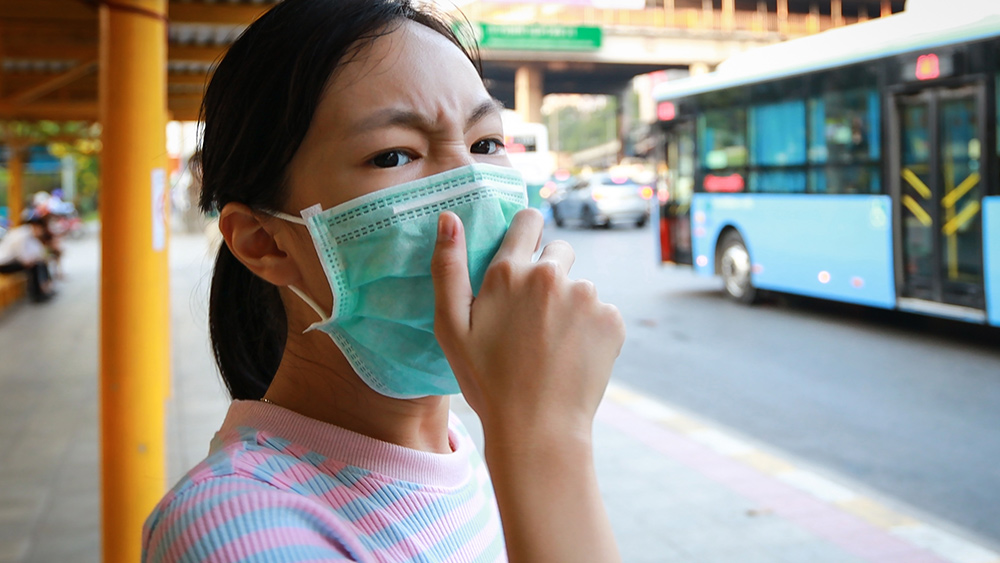More than 750 million GMO mosquitoes to be released over Florida Keys – what could go wrong?
08/24/2020 / By Ethan Huff

For the first time, genetically modified (GMO) mosquitoes are set to be released over American soil.
The Florida Keys Mosquito Control District (FKMCD) has given Oxitec, a corporation we have reported on in the past, permission to unleash some 750 million GMO mosquitos in Monroe County, Florida, over the next two years.
This “trial,” as they are calling it, will commence at some point in 2021, despite objections from more than 2,000 Florida residents who wrote in to oppose the proposition prior to its approval.
Many locals had petitioned for a referendum to decide whether or not to proceed with what Jaydee Hanson, policy director for the International Center for Technology Assessment and Center for Food Safety, described as a “Jurassic Park experiment.”
Back in 2016, voters overwhelmingly rejected a proposed GMO mosquito trial over Key Haven. This time, voters are not being given a voice at all, and neither Oxitec nor the FKMCD has indicated where this latest batch of GMO mosquitoes will even be released.
“With all the urgent crises facing our nation and the State of Florida – the COVID-19 pandemic, racial injustice, climate change – the administration has used tax dollars and government resources” to release GMO mosquitoes over Florida, Hanson warned in a statement.
EPA did not even look at potential risks, nor did it calculate environmental impact
Financially backed by the Bill & Melinda Gates Foundation, Oxitec has been experimenting with GMO mosquitoes for years, which it claims may help to eradicate mosquito populations in places like Africa where they are said to be spreading malaria.
Oxitec has attempted to conduct trials outside of America, where restrictions are generally looser. But now it has permission to release GMO mosquitoes right here in America, a first with completely unknown implications.
“What could possibly go wrong? We don’t know because EPA (Environmental Protection Agency) unlawfully refused to seriously analyze environmental risks, now without further review of the risks, the experiment can proceed,” Hanson adds.
Barry Wray, Executive Direct of the Florida Keys Environmental Coalition, is similarly perturbed and demanding a remedy. He warned at a recent meeting that the FKMCD has “an obligation to our community, not a vendor that’s products are risky and untrustworthy.”
Many members of the local community have urged the FKMCD to reject Oxitec’s field trial application, noting a dearth of relevant data that in any way suggests the trial will be safe or effective. But thus far they have made minimal headway.
“The release of genetically engineered mosquitoes will needlessly put Floridians, the environment and endangered species at risk in the midst of a pandemic,” says Dana Perls, food and technology Program Manager at Friends of the Earth.
“This approval is about maximizing Oxitec’s profits, not about the pressing need to address mosquito-borne diseases.”
Ed Russo, President of the Florida Keys Environmental Coalition, agrees, noting that the FKMCD does not have the resources to properly manage this process.
“Why have they not acquired the appropriate amount of insurance as well as performance and maintenance bonds?” he asked at the meeting.
“Their evasive answers and lack of management skills are an indictment of their unprofessionalism and arrogance which speaks loudly of an unprepared regulatory process.”
One of the biggest threats is that the GMO mosquitoes will breed and create hybrid wild mosquitoes that end up worsening the spread of mosquito-borne diseases. These GMO mosquitoes may also end up becoming more resistant to insecticides than wild mosquitoes.
There is further evidence to suggest that biting females will be released, despite objections from Oxitec that this will not happen. These biting females would put humans at risk of attack and infection, without their informed consent.
For more related news about untested GMOs being released into the wild, be sure to check out GMO.news.
Sources for this article include:
Tagged Under: bill gates, Environmental Protection Agency, EPA, Florida Keys, genetically modified, GMO, Jurassic Park Experiment, mosquitos



















